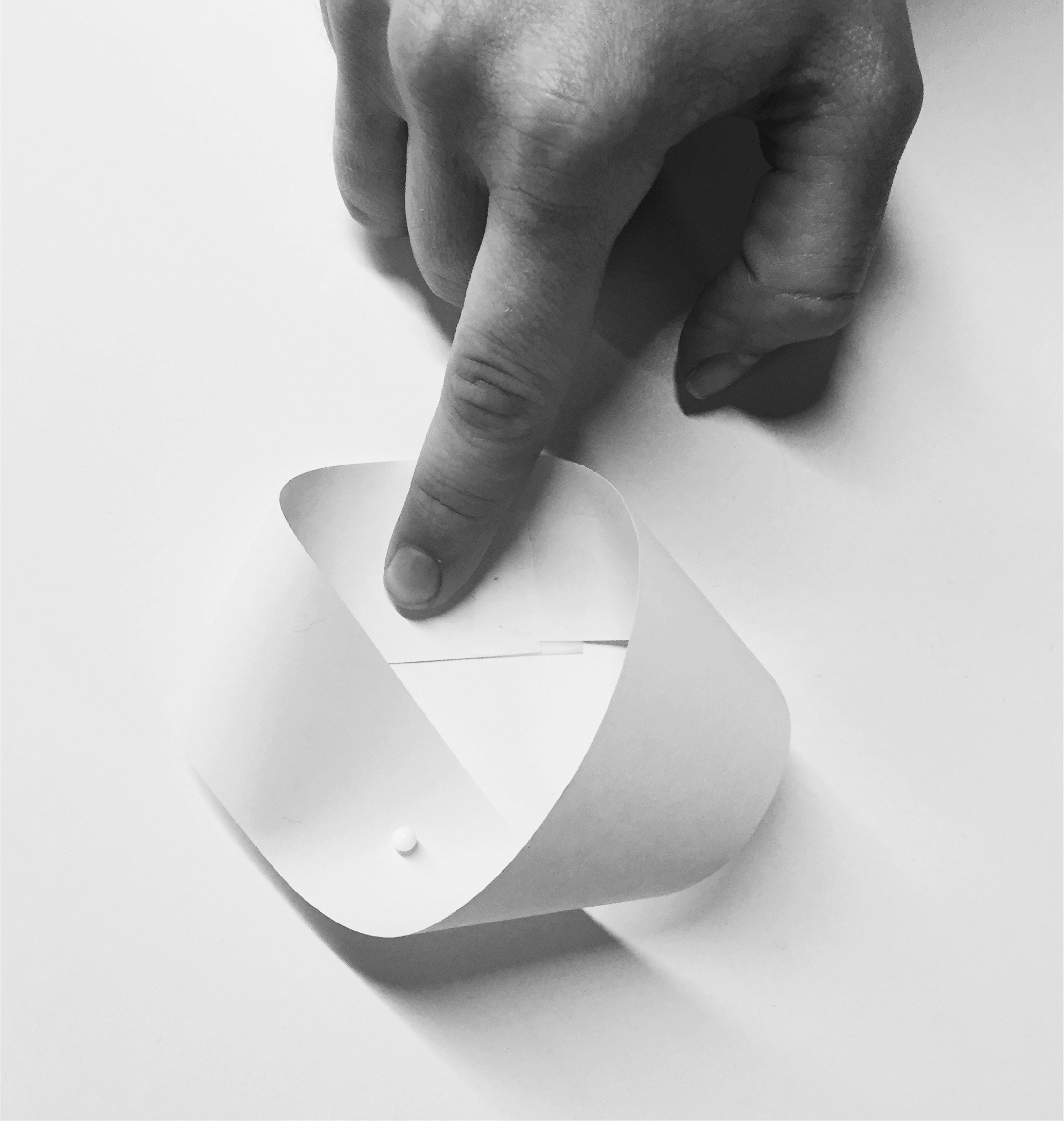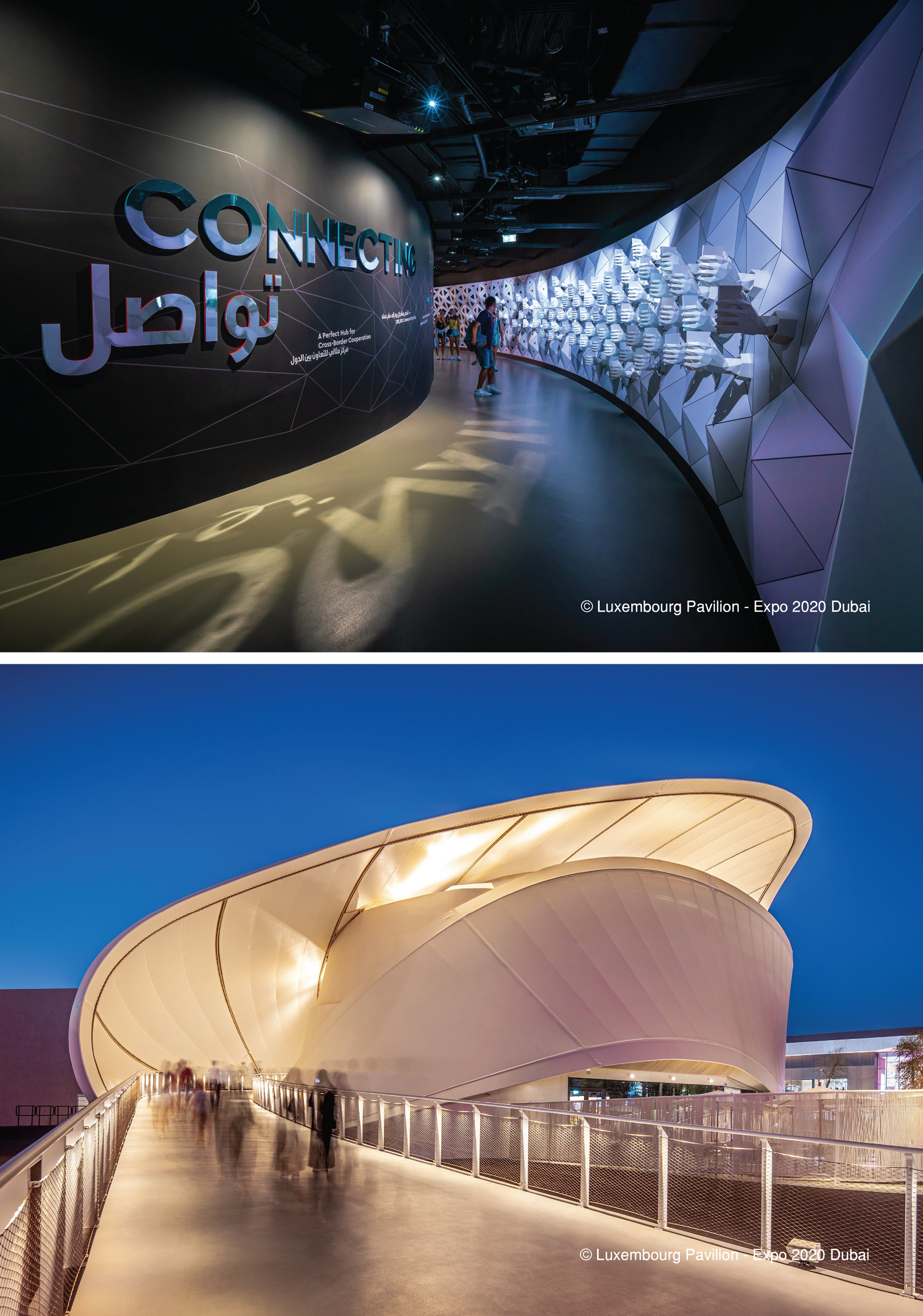Luxembourg
Luxembourg Pavilion “Resourceful Luxembourg”

Shahram Agaajani; Born in Tabriz (Iran) in 1976, Shahram Agaajani is an architect and a founding partner of METAFORM architects. He studied architecture at La Cambre (Bruxelles) graduating with Magna cum Laude in 2001. In 2003 he established METAFORM architects together with Thierry Cruchten. Since then, the award-winning firm has grown to become a multidisciplinary team of over 50 collaborators with offices in both Luxembourg and Dubai.
The firm’s key achievements, including the creation of the Luxembourg pavilion at Expo 2020 in Dubai and Luxembourg’s first Velodrome, bear witness to its know-how and expertise. Their creative and daring approach brings a distinct signature style to each project.
Host country/Organizer: Luxembourg @ Expo 2020
Dubai – Groupement d’Intérêt Économique
Design concept: Metaform
Scenography: Jangled Nerves
General contractor: NUSSLI

How do you merge user experience, scenography, and architecture?
Scenography and architecture are complementary in the mission to merge people with the exhibition.
In a didactic, interactive, and intuitive way, different projections and animations display the country and its people. Collectively, it creates a continuous flux of images from start to finish for experiences on the top second floor. The ribbon becomes a multilayered scenography canvas, alternating floor, wall, and ceiling as means of expression.
The journey from the bottom to the top is continuous, but constantly changing. While moving between the inner and outer protective skins, the feeling of being in and out at the same time prevails. The proportion of the space constantly changes, giving a nod to the similar perceptional changes of Luxembourg City due to its very particular and unique landscape. A variety of parallel visual connections are created on different levels, and through different stages. Ambiances and moods shift instantaneously, sparking curiosity to learn more about the country.
One of the requirements was to complete the project using 70% reused or recycled materials, which was a challenge that Metaform met by opting for steel construction. The fiberglass membrane, although difficult to recycle, can be reused by the producer, who specifically agreed with it.


